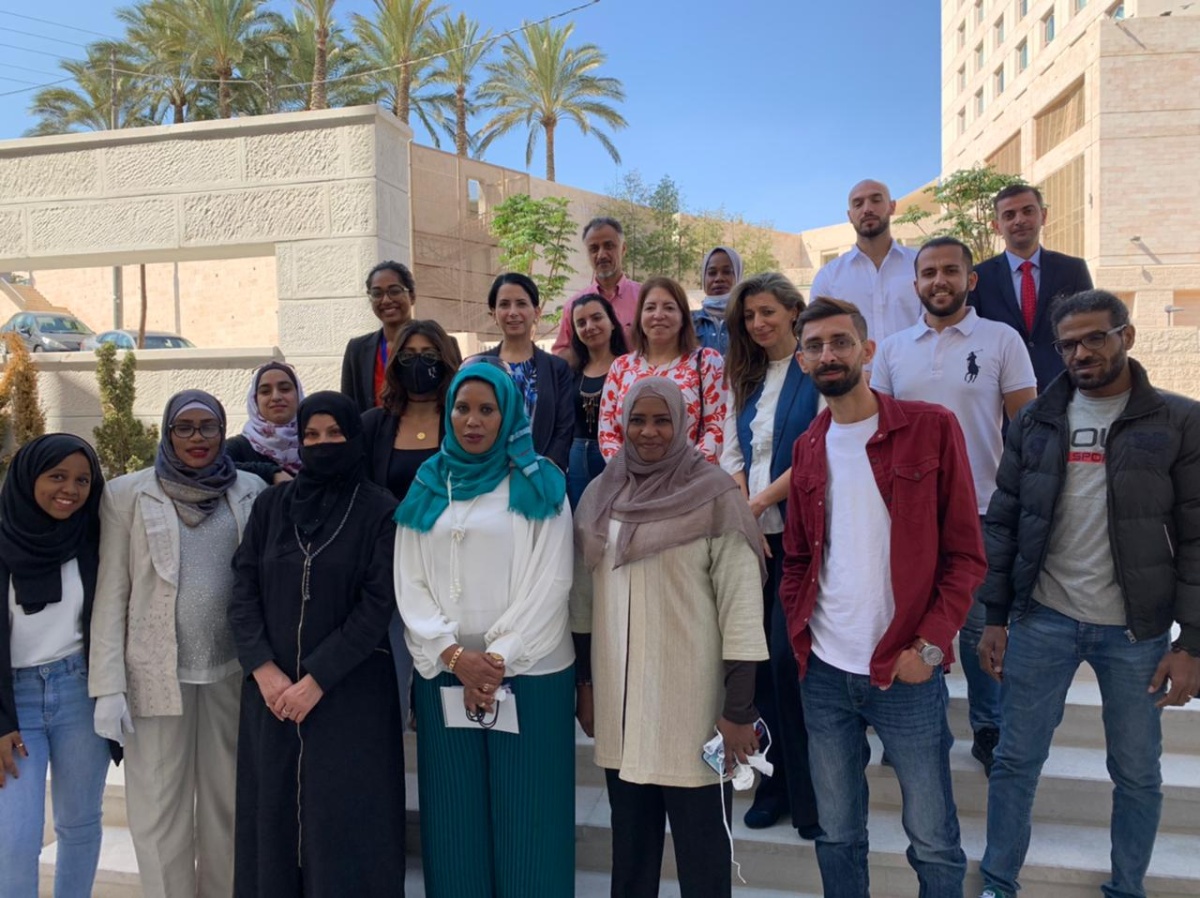The Arab Renaissance for Democracy and Development (ARDD) hosted a discussion session titled “Strengthening the Voices of Migrant Workers in Jordan” as part of the “Haquna” (Our Right) project, which is implemented in partnership with the Heinrich Böll Stiftung – Palestine and Jordan. The goal of the discussion was to contribute to empowering, protecting, and promoting the rights of migrant workers; a “Migrant Workers Committee” was formed, as part of the project, to encourage civic participation and defend and advance the rights of migrant workers in Jordan.
During the session, there were renewed demands by human rights organizations, youth, and civil society to empower migrant workers and prevent their rights from being violated through legislation. Also discussed were challenges facing migrant workers in host communities, the need to listen to their voices, and to offer them all forms of protection.
The number of migrant workers in Jordan is estimated at nearly one million, with Egyptians constituting the largest part.
Executive Director of ARDD Samar Muhareb highlighted the lack of awareness, both among many Jordanians and among migrant workers, of the rights and duties of the latter, and the need to work to raise workers’ awareness and shed light on the challenges they may face.
Muhareb also stressed the importance of bringing labor legislation in line with international standards, as this will help improve the legal, economic, and social conditions of workers in Jordan.
Director of the “Haquna” project Lina Halasa said that they helped migrant workers to secure their rights and exercise their civic role in their communities by supporting them to establish a “Migrant Workers Committee” as part of the regional platforms dedicated to and focused on refugee and migration issues, Migration and Refugee Forum for the Arab World (MARFA), which is part of ARDD’s networks. She also said that the project provides training for migrant workers on civic participation and knowing their rights, and encourages them to come up with their own initiatives that address their rights and needs.
International Lawyer Francesca Albanese spoke about the main issues and rules that affect migrant workers internationally, adding that there is a need for a specific convention regarding migrant workers, who are a particularly vulnerable group that usually are not familiar with the laws of the hosting country or its language.
Albanese said that the International Convention on the Protection of the Rights of All Migrant Workers and Members of Their Families aims to protect the persons who left their countries for better opportunities and that international law stands on the side of migrant workers and seeks to guarantee their basic rights and ensure that they are not discriminated against.
ARDD legal advisor Rami Qwaider said that “the Jordanian labor law protects migrant workers and treats them on par with Jordanian workers, but one main issue noted is the unequal treatment of migrant workers with regard to employment”.
Concerning the rights of migrant workers in Jordan, Executive Director of the Tamkeen Center for Human Rights Linda Kallash said that “despite the fact that Jordan hosts a large number of refugees and migrant workers, it has not signed agreements pertaining to refugees and migrant workers, but since it is committed to human rights instruments, these apply to their rights as well”.
Kallash also said that Jordan is the only country in the region where the Labor Law covers domestic workers as well; moreover, it issued a special system concerning domestic workers’ rights for domestic workers.
Member of the Migrant Workers Committee Yasser Al Masry urged the integration of immigrant youth into cultural work, stressing that the “Haquna” project, which works on enhancing the protection of refugees, enables workers to express their opinions about their health, educational and legal needs.
The committee members, he said, suggested that civil society organizations and responsible authorities publish comprehensive infographics or online help pages that answer migrant workers’ most frequently asked questions. They also reviewed part of their initiatives and started a dialogue with the participants in the project to identify their recommendations and suggestions.
Committee member Samia Adam stressed the need to extend a helping hand to refugees and migrants, provide them with the service they need, and inform them of their civil rights. She also presented her initiative Yad Al Oun (Helping Hand), which strives to be a link between refugee and immigrant organizations, and families, to help families get the right to work and to educate their children.
The owner of the “My Right to Know” initiative, Sorour Sobeih, stressed the importance of raising the refugees’ legal awareness, particularly regarding the labor laws, and of urging them to resort to the law to obtain their rights.
The participants in the session stressed the importance of having just and clear policies concerning labor, as this will positively affect the working conditions of Jordanian and migrant workers alike. They also underlined the need for adequate health care, education, and mechanisms that secure migrant workers’ human rights, especially regarding health care, which is in need of many reforms.
Participants stressed the importance of understanding the needs and rights of the society, regardless of nationality, and of working in collaboration with civil society, governments, and international organizations to ensure that the rights of all migrants and refugees in Jordan are respected, in their best interest.


